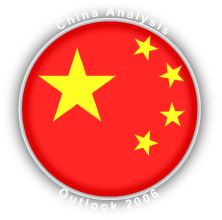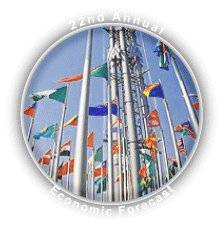Dr. Clotaire Rapaille served a delectable elixir to a packed room of B2B marketers at BIGfrontier yesterday. His talk spanned business in China, investing in India, a new value proposition for shampoo (think “breastfeeding”), why people drive Hummers to the mall, why French people don’t work and myriad others. Rapaille (“Rah pEYE”) lists half of the Fortune 100 has retained clients because he has a track record with helping them understand the inner structures of consumers’ minds and, therefore, how to communicate with them. Moreover, many of these inner structures hold true across cultures which can enable companies to develop offerings that will hold true globally. Sound impossible? Read on.
As usual, I will share my notes from the meeting and follow those with some of my insights but, unlike the usual custom, I have also interspersed some material from one of his major books to fill gaps. The topics he addressed were intricate and complex, and there wasn’t time to delve into the details of the background research.
Background
Rapaille, a Frenchman who subsequently became virulently American, began his career as a psychoanalyst working with autistic children in Switzerland, which gave him insights into how the brain worked and […]
Accelerating Forces Buffet the Enterprise
Volatility of customer wants and diversity of markets around the world will increasingly demand that enterprises innovate if they want to remain relevant because their current product introduction and innovation processes are woefully insufficient. In addition, several “structural enablers” are driving down the cost of collaboration—globalization, enterprise software maturation, e-collaboration tools and BPM solutions. I think it’s beyond dispute that “emerging” markets around the world look at India as a model, and there will be a cascading wave of new outsourcing providers entering the market in the years ahead, keeping downward pressure on supplier prices and forcing increased innovation across the supplier value chain. For example, many educated young people in these markets are native with e-collaboration tools, which should lead to new models of collaboration. SOA and Web services are increasingly ingrained in enterprise software, opening up legacy and new solutions to web-based, granular sharing of information. BPM, because it digitizes an increasing spectrum of the business process, is an enabler of outsourcing.
Reposition Outsourcing as Iterative Transformation
Outsourcing in 2006 is where e-business was in 1998, when the Internet was a tech playground in the mid-late 90s. The mission of “e-business strategy” was […]
China Analysis and Outlook 2006 reveals an emerging opportunity to rebalance economic and political influence.
 Part II of the 2006 Economic Forecast featuring David Hale (presented Part I) and Lyric Hughes-Hale. Here, I present my notes of Lyric’s talk, followed by my observations. Part II of the 2006 Economic Forecast featuring David Hale (presented Part I) and Lyric Hughes-Hale. Here, I present my notes of Lyric’s talk, followed by my observations.
Background: China’s development and situation are far more complex than U.S. news sources report. It has seen significant economic liberalization during the past 25 years, and it shows every sign of continuing on that trajectory. However, the country is politically conservative. There is no freedom of the press. That said, the authoritarian government may produce reform much more quickly than if China had been democratic because the democratic process often slows reform. China is far more open and engaged on the world stage than it has been in many years. […]

SMA 21st Annual Economic Forecast 2006 is my coverage of the SMA/Harvard Club annual confab featuring David Hale and Lyric Hughes-Hale
The Strategic Management Association and The Harvard Club jointly sponsored the Economic Forecast 2006 featuring David Hale and Lyric Hughes-Hale. David presented his encyclopedic knowledge and perspective on global economic trends, while Lyric shared her insights on China in Part II of the evening (she was the founder of China Online and has focused on China for several years.).
As usual, I present my notes, followed by my insights. Here are my notes from David’s presentation (Part I of the meeting).
[…]
Adam Hartung of Spark Partners led a compelling and thought-provoking discussion at this month’s MITEF meeting on 14 March in Chicago. Adam is a veteran of a bevy of management consultancies and large corporations who has spent the last four years researching a hypothesis about innovation, writing a book (The Phoenix Principle) and consulting. His observations are straightforward, profound and potentially healing for industrial economy companies.
Summary of the Meeting and Discussion “Lock-in” is a corporate phenomenon that is fatal for organizations because it prevents new thinking. New thinking is increasingly important because the market is more volatile than ever. Lock-in happens in a cycle: in its formative stage, the corporation experiences success, and success “hardens” into a success formula; it leaves an imprint on executives, workers and customers, who all identify with the success. Of course, the problem arises when the market moves and nullifies some key assumptions that are embedded in the success formula. There are three types of lock-in:
Behavioral lock-in: group-think, not invented here; slow decision making; rigid ideas about customers and products; sacred cows. Profits from financial manipulation. Structural lock-in: many, but one stood out–“biased toward easily quantified, traditional actions and against more speculative […]
The End of Corporate Imperialism, by C.K. Prahalad and Kenneth Lieberthal, encapsulates the obvious elegantly and factually, and its thesis is far more true today than in 1998, when it was written: “Too often, companies try to impose Western models of commerce on developing countries. They’d do better—and learn more—if they tailored their operations to the unique conditions of emerging markets.” Western MNCs (multinational corporations) perceive the primitive state of consumption in emerging markets, and they too often develop a strategy in which they: 1) focus on the extreme minority of wealthy consumers and/or 2) address the order of magnitude larger middle tier of the market by offering their past-mature products with minor cosmetic changes.
This is another symptom of MNCs’ being stuck between industrial and knowledge economies. As I stated in my Transourcing Point of View, “Enterprises are ambivalent about innovation and product creation because they represent an inherent conflict: the drive to amortize past investments (including process-oriented constraints of marketing, distribution, service, etc.) conflicts with companies’ need to satisfy customers’ wishes for novelty. In practice, this too often leads to vapid product extensions.” The industrial-era enterprise derived its competitiveness largely through production and distribution efficiency, and it marketed […]
In the entry on innovation, I mentioned that an excessive focus on the numbers produced irrational behavior, and I found a perfect example of it this morning. Coca-Cola spends millions of dollars on developing new flavors of Coke, most of which have proven to be well publicized, expensive flops, at least compared to projected goals. According to The Wall Street Journal (“U.S. Thirst for Mexican Cola Poses Sticky Problem for Coke“), the growing Hispanic community in the U.S., a large portion of which is from Mexico, thirsts for its home-grown version of Coke, which Coca-Cola refuses to import due to its agreements with U.S. bottlers. Some enterprising distributors manage to quasi-circumvent the system to import just under $120 million of soda into the U.S. each year. Coke threatens retailers and distributors with legal niceties when bottlers cry foul but otherwise looks the other way.
Let me get this right. Coke spends millions on developing product extensions that flop, yet it has a $120 million nascent market for a product that already exists, which it is resisting.. all because of its relationship with its distribution channel. This is a perfect example of industrial economy thinking: restrict and control while putting customers […]
Innovation
I had the privilege of hearing Larry Keeley, Co-founder of Doblin, the innovation strategy firm, at the GCB Innovation Round Table last night. He painted a vivid picture of the white water global economy in which we find ourselves as a context for his talk on innovation. In brief, the degree of uncertainty and change has created a “nervous time” for corporate executives. The pace of change is probably unprecedented in the experience of the human race (my take on this below). He implied that the anxiety around terrorism is amplifying this underlying general nervousness:
We face a high degree of ambiguity on political, economic and societal levels. People hate ambiguity. Complexity has two meanings: things are difficult to understand and we cannot know the outcome of our actions (because there are too many inter-related concepts, dependencies and data for us to comprehend). People find this overwhelming. Volatility of markets; Wall Street (fill in the blank for other markets) punishes executives for vagaries in the numbers, which has led to a legendary “make the numbers at any cost” attitude. People find this mystifying and unsettling because it constantly produces nonsensical behavior.
If we define innovation as measured risk-taking and […]
Rare Legal and Business Insight into Offshore Countries and Regions describes Baker & McKenzie’s excellent webcasts focused on offshore business.
Depending on your business strategy, it may make sense to explore offshoring to several regions of the world to mitigate the risk that your partner might be affected by natural disasters or political upheaval. In fact, many offshore experts recommend a portfolio strategy for risk mitigation or operational effectiveness (follow the sun operations can reduce time to market) while meeting cost objectives.
[…]
The current revolution in enterprise software is only a preview of a much larger, more pervasive shift that will transform the global economy within the next decade. Service-oriented architecture and Web services are two of the more well-known elements of the maturation of distributed computing, which is changing the rules of the vaunted software development life cycle.
In short, we are on the way to becoming a real-time market for global human capital whose ascendancy will increase with the growth of the knowledge economy and global standards for work processes. If we classify economic value according to knowledge/information, manufacturing and agricultural products and services, the knowledge portion has been steadily increasing its share of the value chain, and this trend is accelerating. Of course, information technology facilitates the creation, distribution and sharing of knowledge.
What does this mean for outsourcing and offshoring? By understanding how standards-based technologies have combined to transform enterprise software, we can learn how the coming standardization of work processes will drive explosive demand for an always-on market for knowledge workers and real-time value chains.
Read a longer version of the article published in the Technology Executives Club Journal. Forthcoming next month, my point of view […]
|
|

 Part II of the 2006 Economic Forecast featuring David Hale (presented Part I) and Lyric Hughes-Hale. Here, I present my notes of Lyric’s talk, followed by my observations.
Part II of the 2006 Economic Forecast featuring David Hale (presented Part I) and Lyric Hughes-Hale. Here, I present my notes of Lyric’s talk, followed by my observations.